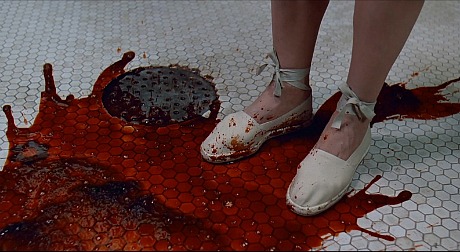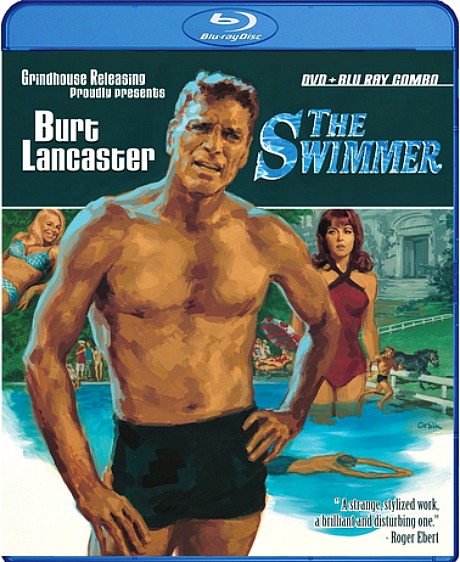I was going to tough it out at the Sundance Film Festival until Saturday, but there’s almost no energy here…nothing. Every year it thrives and throbs for six days (Thursday to Tuesday) and then dies on Wednesday. Why did I decide to ignore this and plan to remain until Saturday? Last night I saw James D. Cooper‘s Lambert & Stamp (good doc but not now). Variety ‘s Peter Debruge had urged me to see Steven Knight‘s Locke (Tom Hardy on a cell phone, in a car) but I guess not. My plane leaves at 11-something..later.
Daily
Monaco-Cannes Connection
Olivier Dahan‘s Grace of Monaco has been announced as the opening night film of the 67th Cannes Film Festival (May 14 thru 25). Okay but honestly? If I was Thierry Fremaux I would have held out for a film that doesn’t seem like damaged goods. The Weinstein Co. release never looked that great, especially with Tim Roth as Prince Rainer. It was going to open, remember, on 11.27.13. Then it was bumped into March 2014. And now this.
Slimer Looking For Redemption
Now that The Blaze has made me richer than ever before and I don’t have to jump through ratings hoops to please Roger Ailes, I’d like to be candid about something. I’ve enriched myself enormously over the last several years by exploiting the fears and prejudices of aging rural white idiots, but I’d like to tone it down just a bit and maybe share my warmer, more compassionate side. Because…well, I don’t know exactly but possibly because I have concerns that when I die a pack of growling wolverine gremlins will take me down to hell.
Image of the Day
Whose feet? (Only in a movie would a person just stand there as blood splashes across the tile floor, allowing his/her shoes to be stained.) Whose blood? What film?

Real Hateful
It took an extra day or two but a friend has sent me a PDF of what appears to be a real-deal Hateful Eight script. It’s dated 12.12.13, has the hand-drawn Quentin chapter pages, the first chapter is called “Last Stage to Red Rock,” it has that inimitable under-educated Quentin writing style, it states that “the whole movie” will be filmed in “breathtaking 70mm CinemaScope,” the word “gloriousness” is used on page #1 and there are other errors, I’m sure. Is this a fake also? I don’t want to step into the same shitpile so I’m not saying just yet. And I’m not offering to send it out either. But I am saying I have a newbie. Update: Okay, so Gawker posted it…fine.
Rockwell Pharmacy
The title alone tells you this film is broader and cruder than the kind of film that Sam Rockwell does best in (like The Way, Way Back or Laggies), but it might be passable crap. Maybe. Directed and written by first-timers Geoff Moore and David Posamentier — bad news because young guys always go crude. Olivia Wilde, Michelle Monaghan, Ben Schwartz, Ken Howard, Ray Liotta and Jane Fonda. Concurrently opening in theaters and won iTunes/VOD on 3.14.
Late to Ida
Several film sophistos told me to see Pawel Pawlikowski‘s Ida (Music Box, early 2014) at last September’s Telluride Film Festival. Did I listen? Did I at least catch it at the subsequent Toronto Film Festival? Naah — I waited until Sundance. But it met my expectations, you bet. This is one superbly composed, austere, Robert Bresson– or Carl Dreyer-like art film — set in 1962 and shot in black-and-white with a 1.33 aspect ratio. It’s about nuns, vows, cigarettes, fate, family skeletons, sex and sexy saxophones, Nazis and Jews and the grim atmosphere of Communist Poland. And it’s anchored by two understated knockout performances — one by the quietly mesmerizing, ginger-haired Agata Trzebuchowska as a young almost-nun named Anna, the other by Agata Kulesza as Anna’s aunt — the morose, blunt-spoken, hard-drinking, somewhat promiscuous Wanda.
Cheever Guy With Tragic Past
Grindhouse Releasing has a Bluray of Frank Perry and Burt Lancaster‘s The Swimmer (’68) streeting on 3.11. A strange, sterile adaptation of a John Cheever short story that appeared in The New Yorker in July 1964, The Swimmer is easy to admire but all but impossible to like. It has a decidedly cold and spooky vibe. It was shot in the summer of ’66 in Westport, Connecticut — just a town over from Wilton, the leafy hamlet where I was living and half-suffering at the time. I’ve only seen The Swimmer once, but not just because of my own associations — vaguely unhappy memories of failure at school, living under my parents’ rules and regulations, my father’s alcoholism. It’s also that corroded Cheever atmosphere.

Lancaster’s character, a tortured suburbanite who decides to swim across a string of swimming pools in Fairfield County on a journey to his home, is spirited but bluffing — you can tell there’s some kind of tragic history he’s suppressing or hiding from. Like Don Draper he’s all about presenting a “front”, but at least he’s open-hearted and flashing that Lancaster grin. And he looks terrific for a guy of 52 (Burt was born in 1913), wearing only a speedo and looking like a trim 35 year-old.
But with the exception of a blonde teenage girl (Janet Landgard) he befriends and roams around with, the people Lancaster runs into — his “friends” — are ghouls. Their fiendish manner and way of speaking is so curiously “off” that the film gives you a Stepford headache after a half-hour or so. I’ve always regarded The Swimmer as a kind of subtle horror film — a portrait of the stilted values of the World War II “striving class” generation and the alcoholic regimentation that seemed to define suburban affluence back then (similarly portrayed in Ang Lee‘s The Ice Storm and Sam Mendes‘ Revolutionary Road). But The Swimmer is too chilly and creepy — not just lacking in humanity but oxygen.
Chicago Assessor
Chicago Tribune entertainment guy Mark Caro has written one of those “Oscar season sure is a long, arduous and costly process” articles. The quote I supplied is nothing new (I’ve expressed it repeatedly since HE began ten years ago) but it’s the only one in the piece with any esprit de corps.

Boiled Down
Two days ago Mark Harris posted a Grantland/”Hollywood Prospectus” column that explained why the Academy’s decision to expand the number of Best Picture nominations (i.e., “the Nolan rule”) has conversely led to a smaller pool of films and filmmakers being nominated for Oscars. He reports that 2013’s “major-category nominations — 44 in all — were spread among just 12 films — the fewest in 30 years. [And] the second-lowest number of films represented in the major nominations in the last 30 years — 14 — happened just one year ago. And the third-lowest also happened in the five years since the rule change. The inescapable truth: Best Picture may have gotten bigger, but the Oscars have gotten smaller.”
Why? Laziness. Academy members are “prioritizing” — i.e., not doing their homework by watching enough films, allowing themselves to be led along like sheep by heavily funded Oscar campaigns. “I suspect that the practical effect of a larger Best Picture field is that AMPAS voters now tend to divide the 50-odd DVD screeners they receive [each year] into two piles,” Harris writes. “Movies they ‘should’ see (in other words, the big contenders) and everything else. Guess how often the second pile never gets looked at until it’s too late?”
Same Old Song
The thing I dearly love about this ending is the fact that the scummy, mortally wounded Lorren Visser (M. Emmet Walsh) is, at the end of his life, suddenly very concerned about a tiny droplet of water on a water pipe that’s about to drop on his face. It’s not the slug in his stomach, which he can do nothing about. He knows he’s about to go and is even cackling about it, weird guy that he is. What Visser can’t accept is that damn little glob of H20. Taking shape, getting heavier, larger. The water looks down at Visser and he looks up at it. Waiting, waiting…and then it drops.
